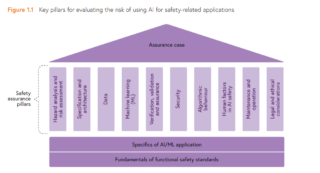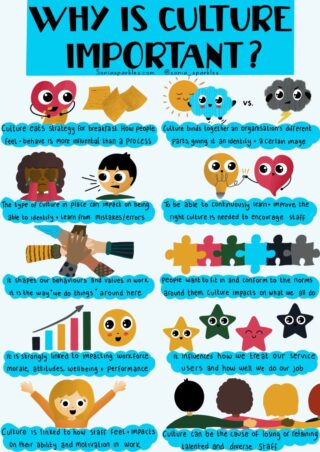Special Interest Group
Philosophy and ethics for health care improvement
To post updates and access other group functionality, please log in. If you are not a Q member please create a guest account.
Latest group activity
-
Joriam Ramos posted an update 4 months, 2 weeks ago
How can we have good conversations about quality? How can we go beyond the basic points that everybody agrees on?
🗓️ Join us this July 17th (11am) to explore those questions with the Philosophy and Ethics SIG.
We’ll explore the tension between the technical and relational sides of health care quality and improvement, and bring them to a point of…Read more
-
-
Hilda Campbell MBE posted an update 4 months, 4 weeks ago
Not long till
17th July 11-12 https://q.health.org.uk/event/how-can-we-have-good-conversations-about-quality-a-q-discussion/
Be great if you can make it along
-
Hilda Campbell MBE posted an update 5 months, 1 week ago
This session may be of interest exploring the technical and relational in health care quality and improvement
17th July 11-12 https://q.health.org.uk/event/how-can-we-have-good-conversations-about-quality-a-q-discussion/
Be great to see you there
-
Thomas John Rose posted an update 5 months, 2 weeks ago
Following on from my post of a month ago regarding the difference between service (product) and process and in addition to these two aspects there is the input from the clinician. I’ve thought a bit more about the ‘product’. Maybe there is a split between ‘healthcare’, the realisation process, and ‘treatment’ which is more aligned with the word…Read more
-
Rollo Moore posted an update 5 months, 3 weeks ago
reposted from IET website: original by Kerrie-Ann Mason 29 May 2024
The concern is not with the raw engineering challenges of developing the software and hardware parts of the solution, or with the nuances of creating a robust AI component, but with the understanding and successful integration of these solutions into our everyday lives.
Many…Read more -
-
Thomas John Rose posted an update 5 months, 4 weeks ago
Interesting discussion on Radio 4’s Today programme this morning about Martha’s Law, error and cover-up in the NHS. It’s time to ‘face the facts’ NHS!
-
Do you know if that discussion is accessible online, Tom? Sounds interesting!
-
Today programme on Radio 4, 27th May. All about Martha’s Law. Here is a link but you may have to sign in. It was good. https://www.bbc.co.uk/sounds/play/m001zly9
via BBC Sounds online.
-
-
-
Brian Jones joined 6 months, 4 weeks ago
-
Thomas John Rose posted an update 6 months, 4 weeks ago
Did anyone read my comments on the ‘Keeping scepticism alive in health care improvement’ blog? I think that a really interesting and valuable (particularly in terms of ‘quality’) discussion regarding the difference between service (product) and process. In addition to these two aspects there is the input from the clinician. These three…Read more
-
In terms of service VS process, I’d say in the NHS we operationally tend to think about all at the same time, the processes needed to deliver the care, the clinical decision points and the actual care, both for individual patients and as a system serving many patients. We do also look at just the experience of patients as ‘touchpoints’ often…Read more
-
As you stated above ‘in the NHS we operationally tend to think about all at the same time’, as a result there are NO good examples from the NHS that explain why I think the NHS would benefit from dissecting these further. But – after almost 50 years as an active member of the UKs Chartered Quality Institute (CQI) and a number of years as a Fellow…Read more
-
-
-
Hilda Campbell MBE posted an update 8 months ago
Curious, can you help?
What does ”being in tune” and ”how much we act together” mean to you in relation to working across disciplines and departments?
Background to the question
Hello, hoping everyone is well. I am prepping for a session with this group, for part of which I am proposing we consider using the liberating structure https:/…Read more
-
This is a great topic for discussion. I would like to include some relevant sections from the new British standard BS ISO 7101:2023, co-produced with the WHO, if possible. Sections like People-centred care, Ethics, and communication. I could produce a discussion document for distribution prior to the event. I think it would be a good fit with your…Read more
-
that would be so kind and appreciated, thank you 🙂
-
I’ll get on with it. I did suggest a similar thing at the SIG conveners meeting but it did not get any votes. I’m sure we will be surprised by the results.
-
Hilda, I have at last added to the Documents my diagram. It took some time to get authority from BSI for me to use it. I have highlighted the relevant clauses in green. Descriptive text is included in the standard for each of the clauses. For example for Clause 8.11 Ethics – The organisation shall have defined processes for identifying,…Read more
-
Quality Management Systems operate Continuous or Continual Improvement (CI) and not the NHS version of Quality Improvement (QI). CI is designed to continually improve ,processes’. In order for this processes have to be documented and their application monitored. This is NOT the case in the NHS.
-
-
Thanks Tom
I have always followed a variation of the quality cycle for continuous improvement in my roles starting with….. what is it people using our service are seeking, does it fall within our gift to give or do we need to find ways to help build connections to others or find partners to work with on that issue. If it falls within our gift…Read more
-
Tom thanks so much for the time you have taken to prepare the diagram, I am going over to the documents section to have a look 🙂
-
-
Thomas John Rose posted an update 8 months, 2 weeks ago
-
Rollo Moore posted an update 8 months, 3 weeks ago
Does it ring a distant alarm bell that the ‘artificial intelligence’ industry has taken up ‘ethics programs’ with what might be described as ‘a vengeance’? This metaphor succinctly describes my concerns growing for a balanced approach to ethics as may or may not be applied to any industry (within the competitive framework we call ‘market…Read more
-
Interesting point, is the conversation then less about ‘ethics’……… rules of conduct and instead about morals ‘Principles or habits relating to right or wrong conduct, based on an individual’s own compass of right and wrong.’ but then we get into the debate about each individuals’ moral compass and what we each see as right or wrong? is it…Read more
-
That 15% is really important. I like this image from the fantastic Sonia Sparkles: Sorry can’t add it here. I’ll put it in a new post.
-
“I see the big picture but look at what is the 15% in my control, that can help people and the planet suffer less”
thanks Hilda. I get swamped by the dread of lack/loss of control – it is a good post and point.
Objectivity vs subjectivity – individual vs communal – all a choice. Fairness and all outlooks evolve.
-
-
When I was introduced to the idea of the reticular activating system, it really gave me pause for thought about what I was locking into /and locking out. So much so I created a reflective workbook to help others who may be interested in considering the filters they use to see the world through, also with support from a colleague made a wee…Read more
-
Thanks Hilda, I followed the link and saw the RAS video, and am looking at the workbook you and team created.
It’s the second time in a few days that looking at the local and acting ‘here and now’ has been referred to. Here, and by a 91yo still strong gentleman I met a few years ago. His stories and rollercoaster history and his fraternal outlook,…Read more
-
-
Hi Rollo
I am kind of on that journey too, around where we invest our energy, more and more I am thinking of the time spent in meetings going in circles and not really being able to influence the big picture in any meaningful way, then I think about the work I do directly with people and while the impact may not be as grand as a systems shift, it…Read more
-
- Load more


 Sorry it’s not very clear. I’ll add it to the SIG documents
Sorry it’s not very clear. I’ll add it to the SIG documents